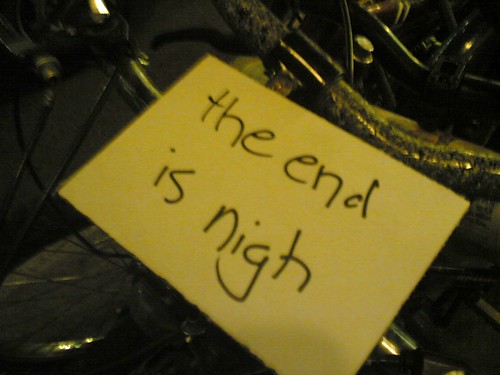October 6th, 2009 by ryan

Image copyright of K R Ranjith (flickr)
One of Economics’ strongest exports was the economist Adam Smith.
In his book “The Wealth of Nations” Smith made the seemingly paradoxical claim that if people follow their own self interest, this will have the remarkable effect of increasing the overall benefit to society. This seemingly simple principle unfortunately took Adam Smith 1,260 pages to say. (Unfortunately very few economists have ever learnt the art of being concise.)
Adam Smith has become synonymous with free market economics. However, people often forget this Scottish intellectual
was primarily a professor of moral philosophy at Glasgow University.
At any rate this contradictory yet accurate argument about the free market remains the centre of all major debates in economics.
Is unbridled free-market Capitalism really the best economic system?
Even the most ardent free market economist cannot ignore the fact capitalism creates inequality and if you just look around this inequality is painfully evident. Thus many economists came along to challenge the free market ideologies of Adam Smith.
This takes us to our next great economist- Karl Marx
Posted in Poverty
September 16th, 2009 by ryan
Check out our facebook profile for details about competitions, updates and prizes!
Posted in In the News
August 26th, 2009 by ryan

Image copyright of roland (flickr)
One of the first scholars to grace our lovely discipline was Thomas Malthus. An early proponent of “The end is nigh” syndrome he is mainly remembered for his essay on Population- where he argued the human race was doomed because the population was increasing at a faster rate than our capacity to grow food. Unsurprisingly it was Malthus who claimed for economics the label “The Dismal Science”.
The communist Lenin sharply criticized Malthus theory calling it a “reactionary doctrine” and “an attempt on the part of bourgeois ideologists to exonerate capitalism and to prove the inevitability of privation and misery for the working class under any social system”- and if you don’t understand what that means, don’t worry neither do we.
Fortunately Malthus displayed a trait that many economists would later share – he was wrong. The population didn’t starve and in fact during the nineteenth century the forces of capitalism flourished creating unprecedented wealth for those who owned the means of production. To find why we will need to look at our next great economist Adam Smith.
Posted in Politics
August 24th, 2009 by ryan
It is debatable whether economics should actually be defined as being a science. After all, unlike Chemistry or Physics in which you type in some numbers, solve a complex equation and Bob’s your uncle there’s the answer. Economics involves an argument. Whereas science attempts to prove something is irreversibly, permanently, and everlastingly true. Economics will rarely give a simple answer. Ask 5 economists a question and the joke goes-you’ll get 6 different answers.
Because of this economics has provided us with a wide variety of rich and interesting characters and over the next few weeks we hope to introduce you to some of them!
Posted in Economic thinking
July 29th, 2009 by ryan
A great new page from our friends at Intute Social Sciences and the Economics Network is up! Useful for degree or A-levels students, it tours some of the key sites for Economics and shows you how to make use of them in your work.
You can find it at: The Internet for Economics.
Posted in Education, In the News
July 20th, 2009 by ryan
Is economics useless?
So given all the recent ‘mess’ in world economy what value does ‘modern’ economics have to offer us? Well it depends on who you ask. Here Stephanie Flanders offers some news and views on whether economics is a ‘busted flush’.
For those of you who don’t/cant be bothered to read the whole thing her argument in a paragraph
‘So, all in all, not an edifying list of complaints. But does that mean economics is a busted flush? I’m afraid not, because even if you think economics got a lot of this stuff wrong, you’d be hard-pressed to understand – or to fix – what’s happening in the global economy today without it. ‘
Maybe it’s not such a good time to be an economist. But it’s one helluva time to study economics.
http://www.bbc.co.uk/blogs/thereporters/stephanieflanders/2009/07/is_economics_a_busted_flush.html
Posted in Economic thinking, In the News, Macroeconomics, Public Policy

